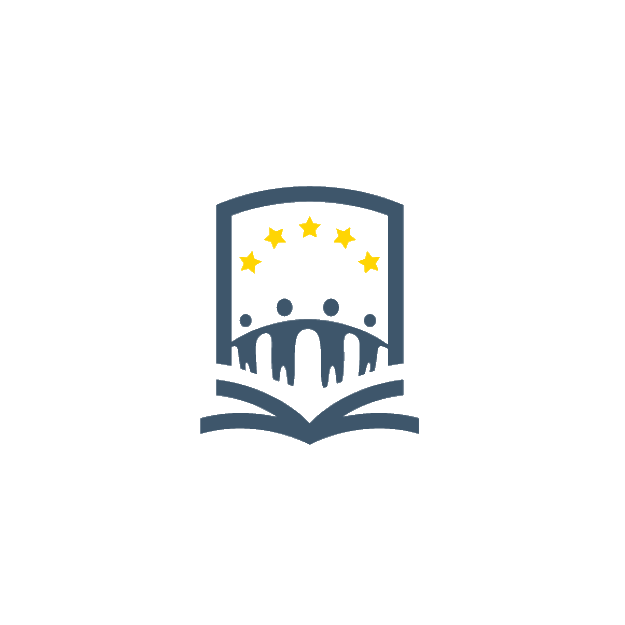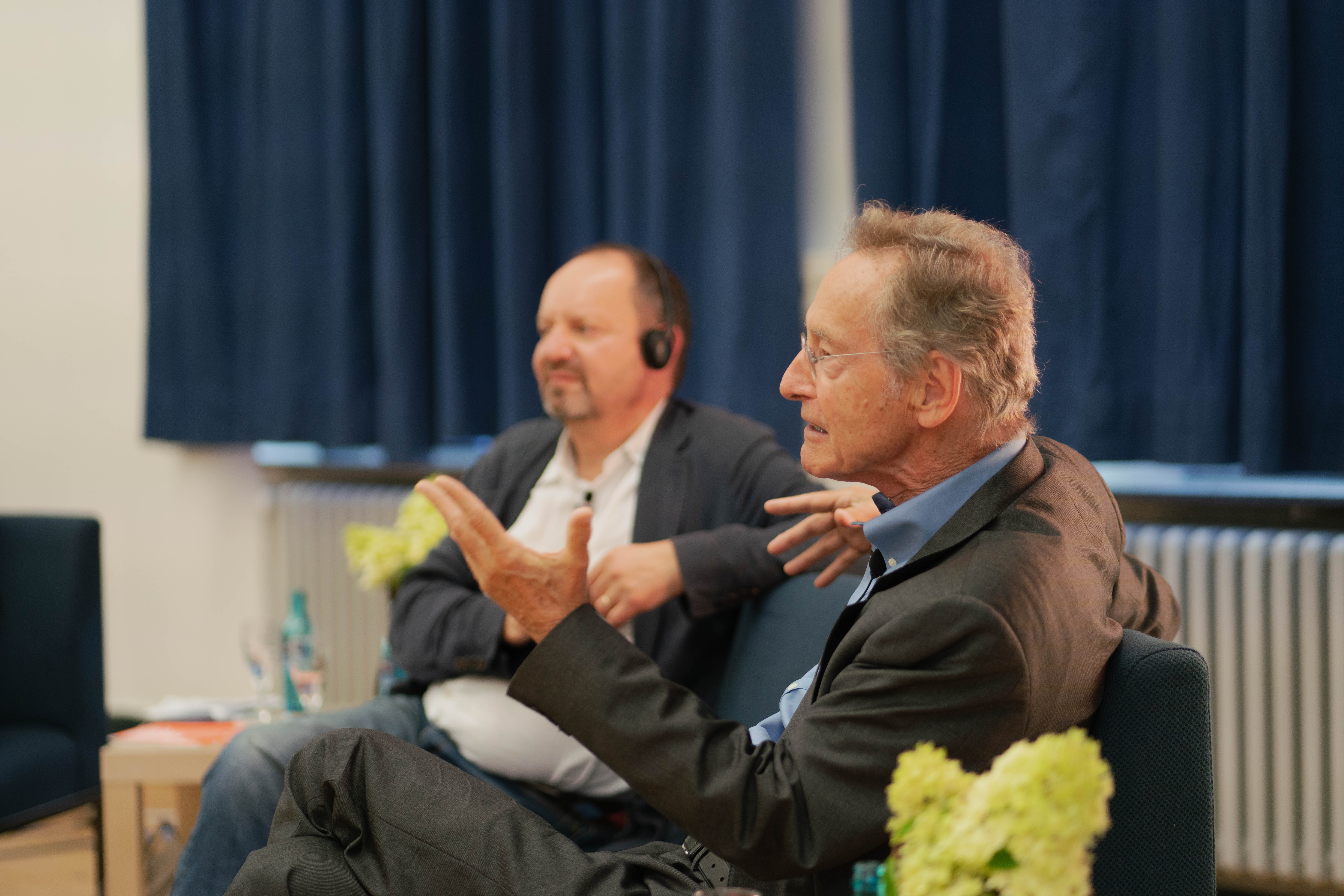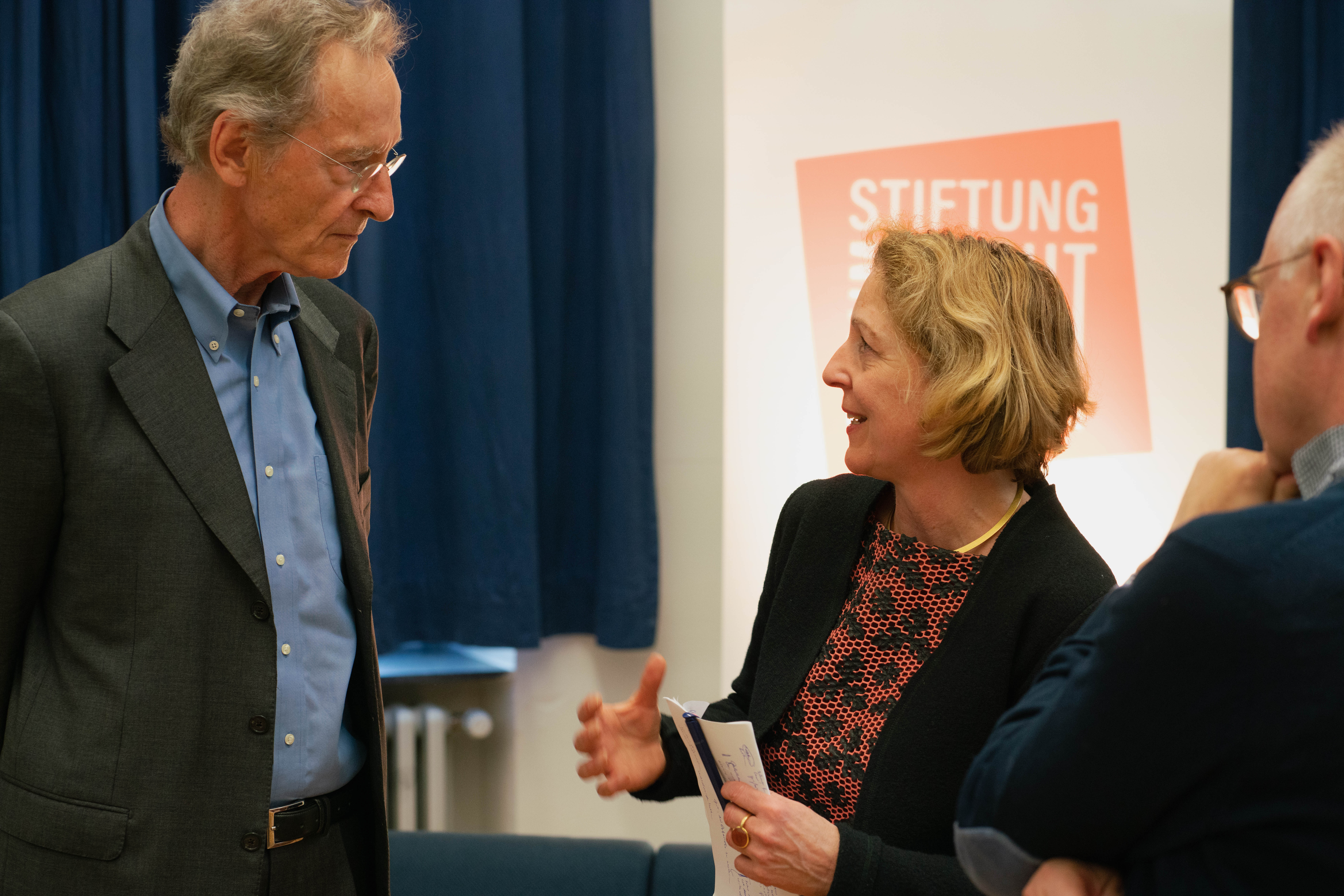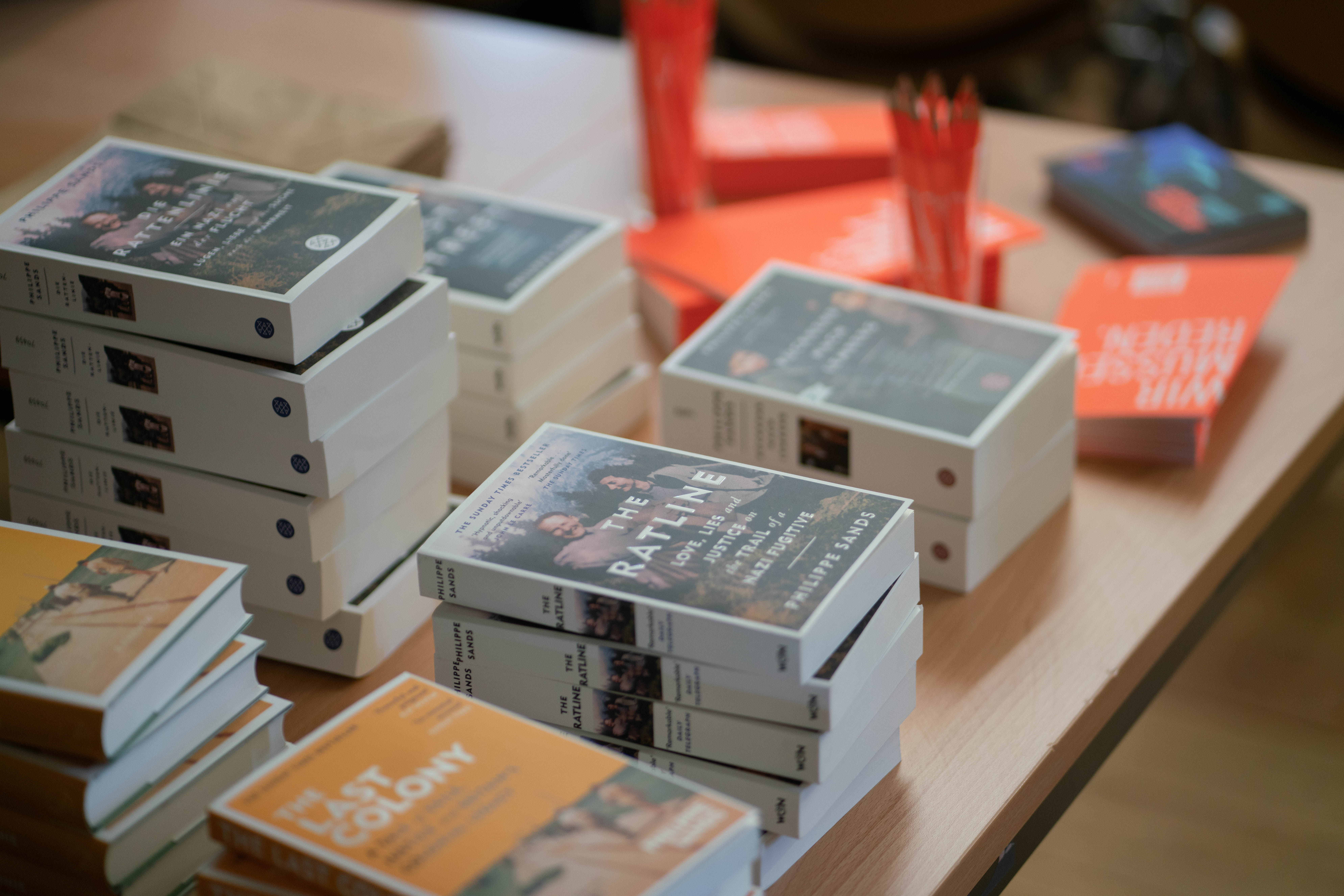News
Review: Justice, Literature and Remembrance
An evening with Bernhard Schlink and Philippe Sands, moderated by Géraldine Schwarz
The reading room of the Academy for European Human Rights Protection at the University of Cologne is filled to capacity last Wednesday, 5 July 2023, when Philippe Sands and Bernhard Schlink did the honours to talk about justice, literature and memory. Both are writers. Both have published bestsellers. Both have achieved international renown through, among other things, film adaptations and translations of their works. And, what gave this evening its form: both are lawyers!
Philippe Sands, an expert in international law, stood as a lawyer before international courts such as the one in The Hague, the European Court of Human Rights or the International Tribunal for the Law of the Sea.
Bernhard Schlink was a professor of public law, social law and legal philosophy at various universities in Germany and the USA. In addition, he held a judgeship at the Constitutional Court for the State of North Rhine-Westphalia in Münster for almost 20 years.
Jura meets author
In addition to the two authors, the German-French journalist Géraldine Schwarz could be won for the evening. In her own literary and cinematic work, including "Les Amnèsiques/Die Gedächtnislosen" ("The Memoryless"), Schwarz turns to the often painful - and often neglected - coming to terms with the past and pleads for a rethink in the work of remembering. As the moderator of the evening, Géraldine Schwarz impresses in this role and presents herself as a challenging discussion partner. Schwarz leads through the evening for more than two hours and offers the audience plenty of space for questions and an open discussion.
The first topic is the tension between court proceedings and justice on the one hand and memory and reparation on the other. To what extent can a guilty verdict erase experienced suffering and trauma or atone for guilt?
Bernhard Schlink dedicated his world bestseller "The Reader" to Germany's guilt over its past: the author says that the failure to come to terms with the crimes of National Socialism, the Holocaust and the perpetrators as the "second guilt" of the people after 1945 "preoccupied his entire generation".
People and nations share secrets, things that are not talked about, says Sands. He himself is attracted by the gap that arises when people or nations avoid coming to terms with reality. His research "The Rat Line" is symbolic of this gap.
"Who do we get to talk about justice?" (Sands)
Later, the discussion focused on the limits and potentials of literature and legal processes in coming to terms with the past - for example, in dealing with the aftermath of crimes, dictatorships or conflicts. What was exciting here was the view of two lawyers who write - how do they assess their own possibilities of influence through their literary work? Both agreed that literature can make a great contribution to coming to terms with the past. Stories, documentaries and the description of individual fates open doors because they would provide neutral space for different perspectives.
And speaking from the perspective of the recipients: Courts interpret right and wrong, give instructions for action for civil coexistence. Books pleasantly provide space for what was, what would be, what could be - without having to judge.
According to Schlink, the law supports both remembering and forgetting. Both can be traumatic. Therefore, it is important to ask ourselves: What can law achieve? How do we want to remember past injustice?
In the process of reparation, court cases have a decisive role, Sands continues. And since more people read novels than court judgments, it is important to reflect on how literature and jurisprudence can be combined: "What is the relationship between a trial and a novel?"
Sands, born in London to a Jewish immigrant family, followed in the footsteps of his ancestors for his work "East West Street" (2016) and connected it with the story of two jurists who had a decisive influence on modern international law. In contrast to non-fictional texts, fiction has the possibility to make the past accessible to readers through personal connections and to be a door opener for complex jurisprudence, said Sands. He was chairman of English PEN from 2018 to 2023 and this also underlines his attitude: it is important to write about justice! Trials are only one aspect of this. However, the imperative of truthfulness applies, and authors must not ignore historical sources, adds Bernhard Schlink.
Géraldine Schwarz skilfully links the biographies of the authors, especially their legal careers, with their oeuvre. Even though it is not an evening of reading, the audience gains insights into their current prose work.
In his research "The Rat Line", Philippe Sands sketches the escape of an SS officer before his conviction. The source material was private letters and diaries of the Wächter family as well as conversations Sands had with Otto Wächter's son.
The story "The Granddaughter" by Bernhard Schlink also deals with the motives and personal consequences of an escape - albeit under different auspices:
Birgit flees to West Germany for love and sacrifices a life with her daughter. Here, too, it is a matter of historical research, the narrative bridges reach into the present and again the protagonists struggle with different world views.
After the discussion on the blue sofa in the packed historical reading room, there are numerous requests to speak from the - in part international - audience.
The discussion took place in English and German. The event was planned and carried out as a cooperation between the Stiftung Forum Recht and the Academy for European Human Rights Protection at the University of Cologne.
We would like to thank the team of the Stiftung Forum Recht for the extremely professional and good cooperation!
(Report: Stiftung Forum Recht)





